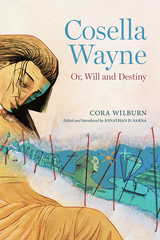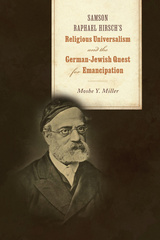To Stand Aside or Stand Alone
Southern Reform Rabbis and the Civil Rights Movement
By P. Allen Krause; Edited by Mark K. Bauman and Stephen Krause; Introduction by P. Allen Krause and Mark K. Bauman
University of Alabama Press
A landmark collection of previously unpublished interviews with Reform rabbis concerning their roles in the civil rights movement.
In 1966, a young rabbinical student named P. Allen Krause conducted interviews with twelve Reform rabbis from southern congregations concerning their thoughts, principles, and activities as they related to the civil rights movement. Perhaps because he was a young seminary student or more likely because the interviewees were promised an embargo of twenty-five years before the interviews would be released to the public, the rabbis were extremely candid about their opinions on and their own involvement with what was still an incendiary subject. Now, in To Stand Aside or Stand Alone: Southern Reform Rabbis and the Civil Rights Movement, their stories help elucidate a pivotal moment in time.
After a distinguished rabbinical career, Krause wrote introductions to and annotated the interviews. When Krause succumbed to cancer in 2012, Mark K. Bauman edited the manuscripts further and wrote additional introductions with the assistance of Stephen Krause, the rabbi’s son. The result is a unique volume offering insights into these rabbis’ perceptions and roles in their own words and with more depth and nuance than hitherto available. This exploration into the lives of these teachers and civic leaders is supported by important contextual information on the local communities and other rabbis, with such background information forming the basis of a demographic profile of the Reform rabbis working in the South.
The twelve rabbis whom Krause interviewed served in Alabama, Georgia, Louisiana, Mississippi, Tennessee, and Virginia, and the substance and scope of their discussions cover some of the most crucial periods in the civil rights movement. Although some have provided accounts that appeared elsewhere or have written about their experiences themselves, several new voices appear here, suggesting that more southern rabbis were active than previously thought. These men functioned within a harsh environment: rabbis’ homes, synagogues, and Jewish community centers were bombed; one rabbi, who had been beaten and threatened, carried a pistol to protect himself and his family. The views and actions of these men followed a spectrum from gradualism to activism; while several of the rabbis opposed the evils of the separate and unequal system, others made peace with it or found reasons to justify inaction. Additionally, their approaches differed from their activist colleagues in the North even more than from each other.
Within these pages, readers learn about the attitudes of the rabbis toward each other, toward their congregants, toward national Jewish organizations, and toward local leaders of black and white and Protestant and Catholic groups. Theirs are dramatic stories of frustration, cooperation, and conflict.
In 1966, a young rabbinical student named P. Allen Krause conducted interviews with twelve Reform rabbis from southern congregations concerning their thoughts, principles, and activities as they related to the civil rights movement. Perhaps because he was a young seminary student or more likely because the interviewees were promised an embargo of twenty-five years before the interviews would be released to the public, the rabbis were extremely candid about their opinions on and their own involvement with what was still an incendiary subject. Now, in To Stand Aside or Stand Alone: Southern Reform Rabbis and the Civil Rights Movement, their stories help elucidate a pivotal moment in time.
After a distinguished rabbinical career, Krause wrote introductions to and annotated the interviews. When Krause succumbed to cancer in 2012, Mark K. Bauman edited the manuscripts further and wrote additional introductions with the assistance of Stephen Krause, the rabbi’s son. The result is a unique volume offering insights into these rabbis’ perceptions and roles in their own words and with more depth and nuance than hitherto available. This exploration into the lives of these teachers and civic leaders is supported by important contextual information on the local communities and other rabbis, with such background information forming the basis of a demographic profile of the Reform rabbis working in the South.
The twelve rabbis whom Krause interviewed served in Alabama, Georgia, Louisiana, Mississippi, Tennessee, and Virginia, and the substance and scope of their discussions cover some of the most crucial periods in the civil rights movement. Although some have provided accounts that appeared elsewhere or have written about their experiences themselves, several new voices appear here, suggesting that more southern rabbis were active than previously thought. These men functioned within a harsh environment: rabbis’ homes, synagogues, and Jewish community centers were bombed; one rabbi, who had been beaten and threatened, carried a pistol to protect himself and his family. The views and actions of these men followed a spectrum from gradualism to activism; while several of the rabbis opposed the evils of the separate and unequal system, others made peace with it or found reasons to justify inaction. Additionally, their approaches differed from their activist colleagues in the North even more than from each other.
Within these pages, readers learn about the attitudes of the rabbis toward each other, toward their congregants, toward national Jewish organizations, and toward local leaders of black and white and Protestant and Catholic groups. Theirs are dramatic stories of frustration, cooperation, and conflict.
More southern rabbis rose to challenge white supremacy during crucial years of the civil rights movement than scholars have previously recognized. P. Allen Krause’s provocative interviews, which he conducted in 1966, with thirteen rabbis who served in the South during the most turbulent years of the civil rights movement document this significant historiographical shift. P. Allen Krause and his collaborators were clean about what was at stake in documenting this crucial history.'
—Journal of Southern History
'What brings to life To Stand Aside or Stand Alone is its human dimension, catching the rabbis in the fullness of their beings.'
—The American Jewish Archives Journal
'No one who is interested in this subject will henceforth be able to understand the full picture without consulting To Stand Aside or Stand Alone. Rabbi Krause is to be commended for conducting the interviews so thoughtfully and for laboring to bring them to light in their complete form, and Bauman and the younger Krause are to be applauded for seeing the work to its conclusion in such a professional and instructive manner.'
—Southern Jewish History
'To Stand Aside or Stand Alone will provide the English-speaking world with a documentary treasure trove that is, to the best of my knowledge, sui generis.'
—Gary Phillip Zola, author of Isaac Harby of Charleston, 1788–1828: Jewish Reformer and Intellectual and coeditor of A Place of Our Own: The Rise of Reform Jewish Camping
In 1966, Rabbi Allen Krause conducted frank interviews with Southern rabbis concerning Jews and the American civil rights movement. Now, fifty years later, transcripts of these precious interviews have finally been unsealed. The results—some of them explosive, some disturbing, and all of them illuminating—form the core of this book. It makes a unique contribution.'
—Jonathan D. Sarna, author of When General Grant Expelled the Jews and American Judaism: A History
P. Allen Krause (1939–2012), a congregational rabbi for over forty years, devoted his rabbinate to issues of human rights, social justice, and interfaith understanding. Rabbi Krause graduated summa cum laude from UCLA in 1961 and engaged in doctoral work in American history at the University of Chicago and the University of California, Berkeley. He was awarded a doctorate of divinity from the Hebrew Union College in 1993 and was named the Daniel Jeremy Silver Fellow at the Center for Jewish Studies at Harvard University in 2005. Rabbi Krause taught at universities across California and had articles published in a variety of books and scholarly magazines.
Mark K. Bauman is a retired professor of history from Atlanta Metropolitan College. He is the author or editor of many books, including The Quiet Voices: Southern Rabbis and Black Civil Rights, 1880s to 1990s and Dixie Diaspora: An Anthology of Southern Jewish History. As the founding and current editor of the journal Southern Jewish History, he received the Proctor Award for Outstanding Career Scholarship from the Southern Jewish Historical Society as well as fellowships from the American Jewish Archives and the College of William and Mary. Bauman investigates individual and inter- and intra-group behavior through the study of religious, ethnic, and immigrant minorities.
Stephen Krause is an attorney in the San Francisco Bay area and an award-winning singer/songwriter. He graduated magna cum laude from the Boston University School of Law in 1996 with a concentration in negotiation and dispute resolution, and he was also an editor of the Boston UniversityLaw Review journal. Krause’s law review article, “Punishing the Press: Using Contempt of Court to Secure the Right to a Fair Trial,” published in 1996, has been cited around the world as a primary authority in cases of media indiscretion in high-profile criminal trials.
Mark K. Bauman is a retired professor of history from Atlanta Metropolitan College. He is the author or editor of many books, including The Quiet Voices: Southern Rabbis and Black Civil Rights, 1880s to 1990s and Dixie Diaspora: An Anthology of Southern Jewish History. As the founding and current editor of the journal Southern Jewish History, he received the Proctor Award for Outstanding Career Scholarship from the Southern Jewish Historical Society as well as fellowships from the American Jewish Archives and the College of William and Mary. Bauman investigates individual and inter- and intra-group behavior through the study of religious, ethnic, and immigrant minorities.
Stephen Krause is an attorney in the San Francisco Bay area and an award-winning singer/songwriter. He graduated magna cum laude from the Boston University School of Law in 1996 with a concentration in negotiation and dispute resolution, and he was also an editor of the Boston UniversityLaw Review journal. Krause’s law review article, “Punishing the Press: Using Contempt of Court to Secure the Right to a Fair Trial,” published in 1996, has been cited around the world as a primary authority in cases of media indiscretion in high-profile criminal trials.










